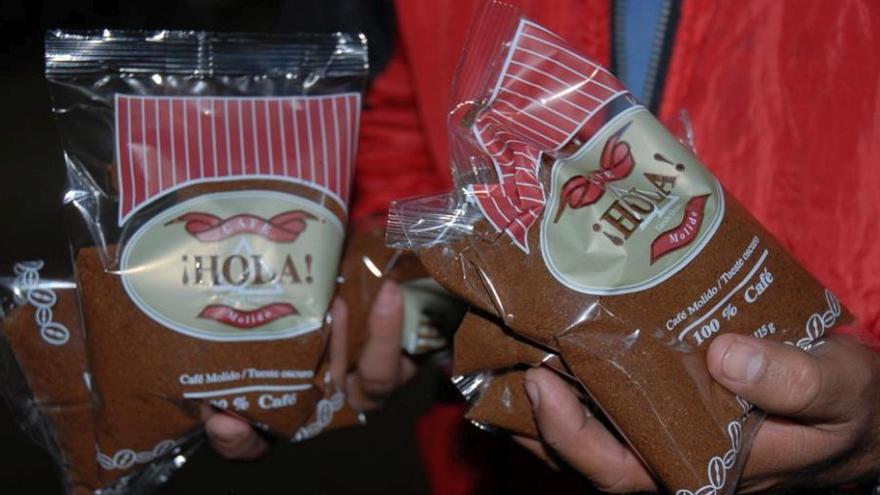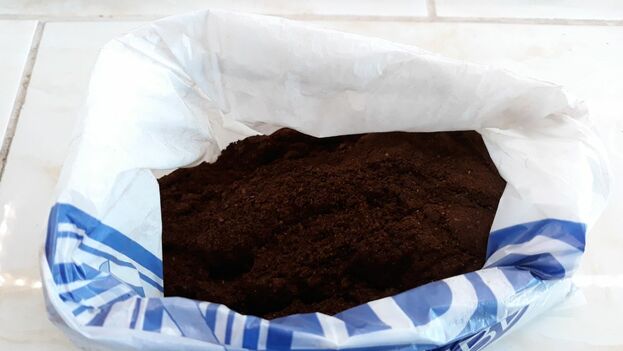
![]() 14ymedio, Havana, 1 December 2019 — Coffee, one of Cuba’s most emblematic products, is again absent from the Island’s markets due to production problems caused by “the late arrival of the packaging,” as reported by the official press in response to complaints from the consumers.
14ymedio, Havana, 1 December 2019 — Coffee, one of Cuba’s most emblematic products, is again absent from the Island’s markets due to production problems caused by “the late arrival of the packaging,” as reported by the official press in response to complaints from the consumers.
For weeks, customers have reported the shortage of the product in the markets in national currency and in convertible pesos. The lack of coffee has caused widespread discomfort in a population that consumes a large amount of this infusion, but also among those who operate cafes, restaurants and hostels dedicated to tourism.
“I’m paying more than 15 CUC per one kilogram of coffee because in some only stores there are only the larger packages, those who have less trade,” an entrepreneur who manages four rooms for tourists a few meters from Havana’s Plaza de San Francisco tells 14ymedio. “The other option is to buy coffee from Miami on the black market,” she adds.
With a wide assortment, the informal market of the Island offers packages of the brands La Llave, Bustelo and Pilón. Packets of just over 280 grams cost around 8 CUC in that market, the salary of a whole week of a Cuban professional. “It gives me business because my clients pay in convertible pesos, but I have neighbors who don’t drink coffee for more than a week,” explains the self-employed woman.
Coffee is one of the products that is still distributed through the network of bodegas maintained by the State to sell rationed and subsidized food, known in Cuba as “the quota.” Although at the beginning of its commercialization it cost pennies, at present a coffee package of about 7 ounces — which each Cuban is allowed to buy only one per month — costs 4 Cuban pesos.
The coffee is sold mixed with 50% of other grains, especially peas, because according to the then ruler, Raúl Castro, Cuba could not “afford” to spend 50 million dollars to acquire the coffee that it does not produce itself in the international market.
The informal market of the Island also supplies the coffee that employees steal in the warehouses, in the roasters and in the state fields. An illegal coffee seller told 14ymedio that this week he was forced to use plastic bags to wrap the product. “I can’t let the business drop me. If there are no regular bags I sell it in bulk,” he said. The price of a bag of mixed coffee in the informal market is around 3 CUC.

Earlier this year the authorities of the sector announced that they expected to produce 9,000 tons of coffee, as part of a recovery plan for the sector, severely damaged by the passage of Hurricane Sandy in 2012 and the problems that forest areas where the beans are sown have suffered for decades.
The figure was announced by the director of coffee, cocoa and coconut of the Agroforestry Business Group (GAF) Elexis Legrá, but over the months it has not been confirmed that it will be met by the end of 2019. The country imports annually close to 8,000 tons of coffee from Vietnam and the rest from other countries in the area to meet a demand that is estimated at about 24,000 tons per year.
The artist César Leal was one of those who sounded the alarm on social networks. In his Facebook account, the painter wrote that “as usually happens cyclically and unexpectedly in Havana, and I think in the rest of Cuba, coffee has once again disappeared from state markets and stores, and even from the black market.”
Leal questioned “how has the so-called ’blockade’ influenced coffee production, if it is a national product, which historically has only needed Cuban hands to cultivate and care to achieve marketing? We also need the collaboration of the United States to increase our coffee production? That would mean admitting that the Enemy is needed,” he said.
For their part, from Miami some families have begun to send more coffee to alleviate the shortage on the Island.
“I had to send two large packages of La Llave coffee to Cuba because is in a bad way. There is no coffee not even in stores,” says Yesenia Cortinas, a Cuban who lives in Hialeah.
Cortinas says her 93-year-old grandmother “can’t live” without a cup of coffee in the morning.
“My grandmother is the only thing I have left in Cuba. Here we make a thousand sacrifices to send them the little we can. Now it is coffee, but I have also done soaps, pasta, flour… I even have to send them disposable diapers,” she laments.
________________
COLLABORATE WITH OUR WORK: The 14ymedio team is committed to practicing serious journalism that reflects Cuba’s reality in all its depth. Thank you for joining us on this long journey. We invite you to continue supporting us by becoming a member of 14ymedio now. Together we can continue transforming journalism in Cuba.
